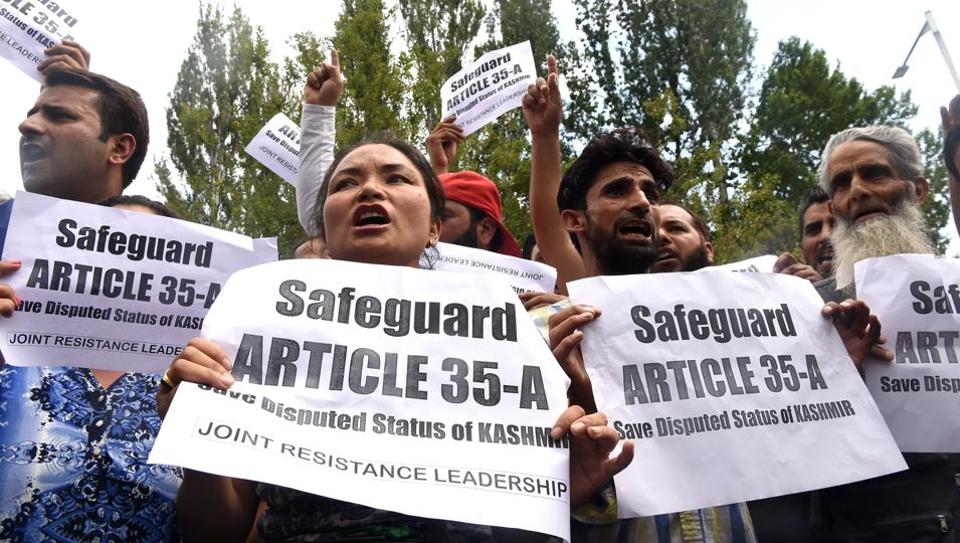New US report on religious freedom addresses NRC, CAA, J&K change of special status

TCN News
The US Department has released its annual report on International Religious Freedom (IRF) for this year in the US Congress on Thursday.
The precursor to this detailed analysis was US Commission on International Religious Freedom (USCIRF) ranking that placed India in the lowest grade in religious freedom, marking it as CPC – Country for Particular Concern. The IRF report was unveiled by US Secretary of State Mike Pompe on Thursday in the assembly, particularly raising concerns over incidents following the change in the status of Jammu and Kashmir, the Citizenship Amendment Act (CAA) and the National Register of Citizens (NRC).
“The revocation sparked protests, criticism from Muslim leaders, and challenges filed in the Supreme Court from opposition politicians, human rights activists, and others,” states the section dealing with the revocation of Jammu and Kashmir’s special status. It highlighted the killing of civilians, security personnel and communication shutdown in the Valley that served as a backlash against the division of the territory.
The report has outlined that violence against minorities accelerated with the announcement of a countrywide NRC and CAA resulting in “religiously inspired mob violence, lynching, and communal violence.” It enlists attacks against Muslims in Uttar Pradesh, Karnataka, Assam, Jharkhand and Bihar, especially noting the Tabrez Ansari lynching case. It marked that during the CAA protests, such “mob attacks by violent Hindu groups against minority communities rose” whereas around the same time, domestic and international media had reported 25 deaths, hundreds of injuries and thousands of detentions, with 5,500 detained in Uttar Pradesh alone while the state Chief Minister Yogi Adityanath denied of such instances. The report recounted that “multiple reports of excessive force by police against protesters, particularly against Muslim university students were noted; especially in December when police moved onto the campus of Jamia Millia University in New Delhi to end a protest, deploying tear gas and beating protesters with batons.”
In addition, debates on changing minority status of central universities like Aligarh Muslim University and Jamia Millia Islamic were also taking place and many public places were renamed from their erstwhile Islamic-origin names to Hindu ones. Simultaneously, Babri Masjid decision by the Supreme Court and instances of denying women entry into the Sabarimala Temple and several similar incidents were happening around the country. IRF echoed that while all of this happened, “authorities failed to prosecute perpetrators” and “often protected perpetrators from prosecution and filed charges against victims.”
Further, in its country report for India, IRF has detailed accounts of “religiously motivated killings, assaults, riots, discrimination, vandalism, and actions restricting the right of individuals to practice and speak about their religious beliefs”, mentioning specifically the “cow vigilantism” by Hindutva groups. It remarked that religious freedom in the Indian constitution stood in stark contrast with state anti-conversion laws.
According to the Ministry of Home Affairs (MHA) data, 7,484 incidents of communal violence took place between 2008 and 2017 in which more than 1,100 people were killed. Although MHA data for 2018-2019 was not available, incidents of communal violence continued through the year.
However, based on NGO and media watch reports between 2018 and 2019, the IRF report for religious freedom in India has mentioned several attacks on Christians and pastor families with perpetrators tracing their alliances to Bajrang Dal and other Hindu nationalist groups. It continued that collaborators of anti-Sikh riots have been released despite proven charges. US Secretary of State Pompeo further revealed in the session that several countries have been listed for the positive development of religious freedom and those that are negative examples but India features in none of the two lists.
The report condemned such attacks on freedom and concluded that “government failed to act to prevent or stop mob attacks on religious minorities, marginalized communities, and critics of the government.”
